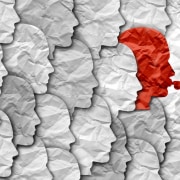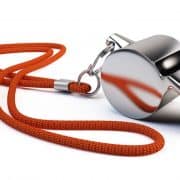|
Getting your Trinity Audio player ready...
|
The Whistleblower Protection Bill is due to be introduced to Parliament later this year. The bill follows on the state capture commission’s recommendation, contained in its report released in 2022, that whistle-blower legislation be amended to provide increased protection.
Former chief justice Raymond Zondo recommended that government take guidance from the UN Convention Against Corruption in seeking ways to enhance existing laws to better support and protect whistle-blowers. The Department of Justice (DoJ) accordingly embarked on the task of reviewing both the Protected Disclosures Act (PDA) and the Witness Protection Act, and in June 2023 the department made public its research on the topic, calling for submissions in response to a widely circulated discussion document on the topic.
“Corruption Watch (CW) welcomes the Whistleblower Protection Bill as whistle-blowers remain instrumental in achieving a society free of corruption,” said CW attorney Nkululeko Conco. “In August 2023 CW made submissions on the discussion paper titled Proposed Reforms for Whistleblower Protection Regime in South Africa.”
The organisation’s submission said that any changes to the whistle-blower protection legislative regime must acknowledge whistle-blowers as the focal point, and the objective to ensure their broadest possible protection should be a foundational principle of the legislation and the starting point for the drafting of any definitions.
Filling in the gaps
Sentebale Makara, the director for dispute resolution at Cliffe Dekker Hofmeyr, recently told SAfm that the Whistleblower Protection Bill seeks to address gaps in existing legislation, and as such it represents progress in strengthening protections.
“There’s no system that is foolproof, but it’s certainly a step in the right direction,” said Makara. “One of the things it does is that it removes some of the existing litigation limitations with the PDA, which only deals with employees, it doesn’t deal with contractors and external contractors, for example, independent contractors.”
This was one of CW’s recommendations – that the PDA’s provision for whistle-blowers be opened to include all persons wishing to make disclosures, and not only those who do it in the context of the work environment. Other CW recommendations are that:
- An agency be established that is in line with proposals contained in the National Anti-Corruption Strategy, to advise and support whistle-blowers.
- There be a public education drive on whistle-blowing and its merits and dangers, to de-stigmatise the practice.
- Government allocate money from the Criminal Assets Recovery Fund to help support whistle-blowers who are seeking legal, security, and mental support.
- Sanctions be established for those who intimidate or threaten whistle-blowers.
The importance of whistle-blowers
“Whistle-blowers are the cornerstone of our fight against corruption,” said Public Service and Administration minister Inkosi Mzamo Buthelezi, addressing media on the outcomes of the G20 Anti-Corruption Working Group (ACWG) Technical Meeting, held from 3-5 March 2025.
“Their courage in exposing wrongdoing often comes at a significant personal risk. Therefore, enhancing whistle-blower protection remains at the top of our priorities as government,” he added, saying the Whistleblower Protection Bill reinforces the government’s commitment to strengthening legal safeguards for those who report corruption.
Makara also highlighted the urgent need to strengthen regulatory bodies such as the Public Protector, the South African Human Rights Commission, and the Financial Intelligence Centre. Such bodies will play a critical role in ensuring that employees that are still currently working in a specific area with an employer are protected, he said, and also holding government accountable for the protection of whistle-blowers.
“[The bill] also suggests establishing a fund to support whistle-blowers and granting greater authority to the South African Human Rights Commission in handling protected disclosures. This will emphasise the importance of providing whistle-blowers with the necessary legal and emotional assistance, which are very important as well and should not be neglected, to help them navigate the complicated legal system and also to deal with some of the emotional challenges that are not just for the whistle-blower, but … their families as well.”
Accordingly, the bill introduces an incentive mechanism and considers protections for whistle-blowers’ family members, creating a broader safety net, he said.
“We anticipate that the bill will define a whistle-blower in the context of our law and expand various definitions that have limited both the scope and effectiveness of the PDA,” said Conco. “CW made comprehensive submissions to enhance the protection of whistle-blowers, and ensure an environment conducive to whistle-blowing as well as effective protection and support of whistle-blowers.”







